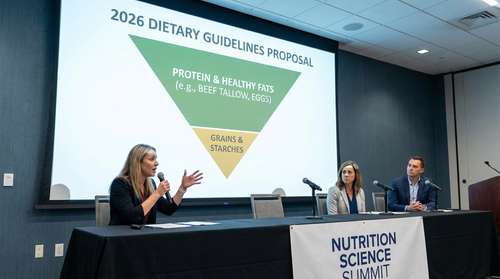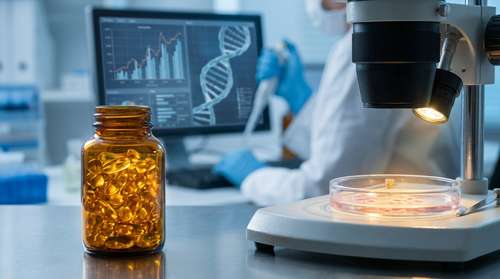Blood is every human being's lifeline. It circulates throughout our bodies, ensuring the delivery of oxygen and nutrients to every cell. However, for some, access to this vital fluid is a matter of life and death. Excessive blood loss due to accidents, surgeries, or medical conditions can lead to dire consequences, which call for blood donation.
In this article, we examine the significance of donating blood and discuss what to consume before and after this noble act to ensure the donor's well-being and the efficacy of their contribution.
The Significance of Blood Donation
Before considering dietary considerations surrounding blood donation, it's essential to understand the significance of this act.
Numerous individuals rely on donated blood for survival every day, be it due to medical procedures, trauma, or chronic illnesses. Donated blood undergoes rigorous screening processes to ensure its safety and suitability for transfusion.
Futhermore, once deemed fit for use, it can be separated into various components, including red blood cells, plasma, and platelets, each serving specific medical purposes, from treating anemia to supporting cancer patients undergoing chemotherapy.

Dos And Don’ts Before Donating Blood
While blood donation is a commendable act, it requires careful preparation to ensure both the donor's safety and the quality of the donated blood.
With that being said, here are some essential dos and don'ts to consider before heading to the donation center:
Things To Do Before Blood Donation:
- Consider Taking Someone Along For Company: Having a companion can provide support and assistance during the donation process, ensuring a more comfortable experience.
- Drink Plenty Of Water: Hydration is vital in maintaining blood volume and preventing low blood pressure, so be sure to drink enough fluids before your appointment.
- Eat A Good Meal: Fuel your body with a balanced meal rich in nutrients, as donating blood on an empty stomach can lead to discomfort and lightheadedness.
Things To Avoid Before Blood Donation:
- Avoid Blood Donation If You Are Not Feeling Well: Prioritize your health and avoid donating blood if you're feeling unwell or experiencing any symptoms of illness.
- Avoid Smoking Or Drinking Before Donating Blood: Steer clear of alcohol and nicotine, as they can affect the quality of your blood and compromise the safety of the transfusion.
- Avoid Donating Blood Without Eating, i.e., On An Empty Stomach: Consume a nourishing meal before donation to maintain stable blood sugar levels and prevent dizziness and other adverse effects.
Best Foods To Eat Before Blood Donation
To make your blood donation experience smooth and support your body's recovery post-donation, focus on incorporating the following nutrient-rich foods into your pre-donation diet.
- Iron-rich foods: Chickpeas, spinach, lean meats, and fortified cereals can help you replenish iron stores, ensuring optimal hemoglobin levels and overall well-being.
- Foods rich in Vitamin C: Pair iron-rich foods with vitamin C sources like citrus fruits, bell peppers, and strawberries to enhance your iron absorption and promote efficient utilization of dietary iron.
- Water: Stay hydrated by drinking plenty of water before your donation. This will allow you to maintain adequate blood volume and minimize the risk of post-donation complications.
Benefits Of You Get From Blood Donation
Beyond the immediate impact of saving lives, regular blood donation offers numerous health benefits for the donor, including:
- Reduced Risk of Heart Diseases: Regular blood donation can lower your blood viscosity and reduce the risk of cardiovascular diseases, promoting heart health and overall well-being.
- Potential Cancer Risk Reduction: Studies have shown that blood donation may lower cancer risk by reducing iron levels and oxidative stress. It also offers protective effects against various malignancies.
- Calorie Burning: While not a weight loss strategy, blood donation can burn approximately 650 calories per pint donated, contributing to overall energy expenditure and metabolic health.
Disadvantages of Blood Donation
While the benefits of blood donation outweigh the risks for most individuals, some may experience minor temporary side effects, including
- Bleeding And Bruising: Bruising or bleeding at the needle site is common and typically resolves quickly.
- Dizziness And Weakness: Post-donation symptoms such as dizziness and weakness may occur due to transient changes in blood pressure and volume.
- Pain And Discomfort: Some donors may experience pain or discomfort at the donation site, which usually subsides with rest and hydration.
What To Eat And Drink After You Have Donated Blood
After donating blood, it's vital to replenish lost fluids and nutrients to support your body's recovery process. So, focus on the following dietary guidelines to promote optimal healing and well-being:
- Drink Plenty Of Water: Hydration is vital in maintaing blood volume and preventing post-donation symptoms, so aim to drink at least 16 ounces of water after your donation.
- Eat Iron-rich Foods: Restore iron levels by consuming foods such as leafy greens, lean meats, and fortified cereals to support hemoglobin synthesis and prevent anemia.
- Include Vitamin C-rich Foods: Enhance iron absorption by pairing iron-rich foods with vitamin C sources like citrus fruits, tomatoes, and bell peppers, maximizing the nutritional benefits of your post-donation diet.
Advantages and Disadvantages of Blood Donation In A Variety of Medical Conditions
Thousands of individuals depend on donated blood for their health and survival daily.
A person’s critical organs won’t be able to maintain themselves if their blood levels drop too low due to an accident, a disease, or poor blood circulation.
Apheresis is a procedure similar to whole blood donation. It supplies additional blood components like platelets, which are necessary for People with coagulation problems. It might also deliver antibodies to aid in the battle against a disease.
So, giving blood can save lives, is low-hazard, and has numerous health advantages. People in need of lifesaving blood donations can do so. However, some medical experts assert that the donor might also profit from that pertaining to their medical conditions.
Advantages of Blood Transfusion For The Recipient
Receiving blood can benefit people with a variety of medical conditions, including those who:
- Experience bleeding from an injury, whether internal or external.
- Have sickle cell disease or another blood-related illness.
- Are currently undergoing cancer treatment; have recently undergone surgery, such as cardiovascular or orthopedic surgery.
- Some need plasma or other blood products for therapies because they have an inherited lack of blood components or are receiving a transplant or both.
Disadvantages of Blood Transfusions
There are some disadvantages to the transfusion of blood, even in the absence of any medical conditions, such as:
- There is a small risk of contracting blood-borne diseases, such as AIDS, through transfusion.
- A blood transfusion can be a time-consuming process.




